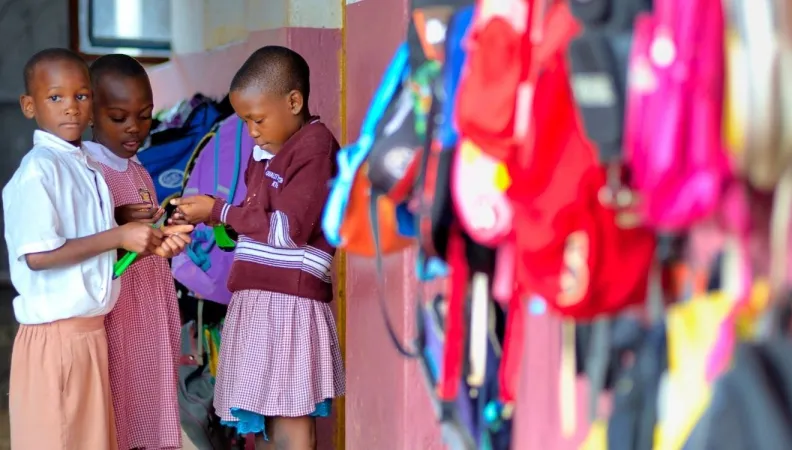Share the page
Global Partnership for Education 2021-2025: A Bold Ambition for Education Worldwide
Published on

In the approach to the highly anticipated Global Partnership for Education conference in London at the end of this month, western countries are finalizing plans to raise urgently-needed funds. The campaign for 2021-2025 aims to raise $5 billion for schooling worldwide, not least for students whose schooling has been interrupted by the Covid pandemic.
New generations of children have begun to attend classes for the first time, particularly in countries where kids – particularly girls – had been denied a basic education. Now, particularly in Africa, more young people are attending school – and staying longer. But for the decades-long effort to improve the quality of education and reduce inequalities challenges remain.
To help developing countries broaden educational attainment, the Global Partnership for Education (GPE) is dedicated to providing funding for basic, primary, and secondary education in the countries that need it most.
See also: What is the Global Partnership for Education?
The already great need for education funding has grown with the immense difficulties caused by the Covid-19 crisis, which has interrupted the schooling of millions of students too early, and threatens to interrupt the education of millions more.
The conference for the 2021-2025 funding replenishment, which will be co-chaired by British Prime Minister Boris Johnson and Kenyan President Uhuru Kenyatta, aims to raise $5 billion over a five-year cycle. At the G7 last month, Great Britain, the European Union, and Germany pledged to contribute €2.7 billion. France is expected to announce its commitment soon. The amount allocated for five years could be proportionate to the €200 million contributed in 2018, which was followed up in 2019 with the establishment of a GPE office in Paris.
GPE as a model of inclusive governance
“In addition to its educational focus, the GPE is a trust fund administratively linked to the World Bank, but with an independent board of directors,” explained Raphaëlle Brody, project team leader at AFD’s Education, Training and Employment Division. “This fund is governed by a multi-stakeholder system with equal votes for donor countries and developing countries, which are both partners and beneficiaries of the GPE, i.e., about 90 countries. It is an inclusive governance model that also integrates civil society organizations specialized in education, foundations, and private companies”.
The budgets allocated are calibrated according to criteria that take into account the GDP per capita, the number of children to be enrolled, and the educational gaps to be addressed. To implement the programs, the GPE entrusts the funds to representatives chosen by the governments of the countries in question, based on their expertise. AFD is the representative in five countries: Niger, Burkina Faso, Guinea, Burundi and Senegal.
Beneficiary countries must commit to increasing the funding of their education sector in national budgets and become involved in steering education policy. Since 2002, 82 million girls have been enrolled in classes and 160 million children in total have gained access to school for the first time in partner countries. Some $500 million has been allocated to support the education sector in response to the Covid-19 pandemic.
For 2021-2025, the goal is to enable 175 million boys and girls to learn to read, write and count, to enroll 88 million more children, and to train more than 2 million teachers and open 78,000 new classrooms.
AFD's push for a boost in momentum
AFD has been the representative for GPE funds since 2013 and manages nearly €322 million in this capacity. Since education is a priority area for AFD, it already supports regional technical assistance initiatives to assist countries in their efforts to improve basic education.
See also: Evaluation Summary - Global Partnership for Education and AFD Support in Burkina Faso (in French)
AFD – a GPE representative in countries that already have programs of intervention – also enjoys a favorable reputation because its approach is in line with the model advocated by the GPE, i.e., emphasizing support for national policies and financing through existing ministry and government channels. The 2021-2025 strategy should encourage more of these approaches and less project-based funding.
"We are known for this way of working," said Raphaëlle Brody. “In Burkina Faso and Niger, for example, GPE funds are channeled through AFD but in a pooled fund with other partners which acts as a catalyst for strengthening the government's share of leadership”. For 2021-2025, AFD hopes that we will see an increase in delegation of funds, particularly in French-speaking countries.
